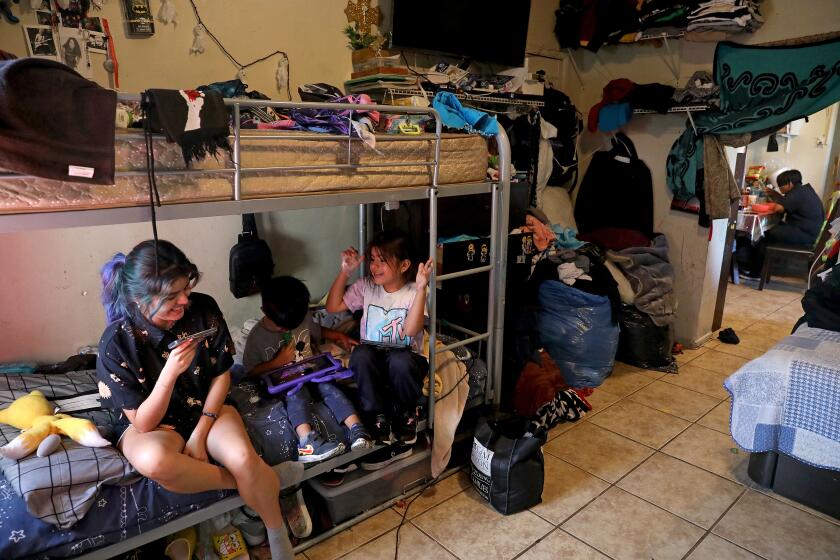Landlords upset by advice on disabled would-be tenant
In the July 14 column, Rent Watch advised that it would constitute housing discrimination for a property manager to discourage a potential tenant from seeking to rent a second-floor unit. We reached this conclusion even though the applicant had a disability that required her to use a cane to climb the steps to the second floor.
This answer resulted in several strong replies from landlords and owners. Here is a sampling, edited for brevity:
“I think you came down way too hard on that landlord who suggested a first floor-unit for the woman with a cane.... I was a landlord for many years, and I also use a cane.... I have also fallen down stairs when wet with rain.”
“I can see it now.... The apartment manager allows the prospective ‘disabled’ tenant to rent the upstairs apartment, then a year or so passes, the tenant requires more help, and requests (demands?) that the owner/manager provide an elevator or some kind of lift so she can continue to live in the upstairs unit. Where will it stop?”
“If the landlord rented an upstairs unit to a tenant who needed a cane to use the stairs, and if that tenant then slipped and she fell, could she sue? Could he get her to sign a waiver saying that she agreed to accept the liability herself?”
One of the principles at the heart of the fair housing laws is that all people, including those with disabilities, have the right to be free of discrimination in choosing where to live. In the context of this Rent Watch question and response, that right means that the landlord is not the appropriate person to decide whether the disabled tenant is capable of navigating the stairs up to the second-floor apartment.
The renter herself is the one in the best position to know what her physical capabilities and limitations are, not the landlord. Any assumptions or stereotypes the landlord may have about the abilities of this disabled tenant are not relevant.
Furthermore, treating this tenant fairly will not impose an unreasonable burden on the housing provider, despite the fears voiced by several of the housing providers responding to the article.
If the tenant with the cane did move in and later asked the landlord to install a lift or elevator, that request would most likely be treated as a request for a reasonable modification under the Fair Housing laws. A reasonable modification is a structural change made to existing premises necessary to afford such person full enjoyment of the premise, such as installing a wheelchair ramp or elevator. The installation would be at the tenant’s expense.
As for concerns over whether the tenant might sue the landlord if she slipped and fell on the stairs, the landlord’s best protection is to adequately maintain the stairs. A tenant would have to show that the landlord was negligent in maintaining the stairs before she could successfully sue for injuries she suffered in a fall on the stairs.
In most cases, Civil Code Section 1953 expressly forbids any attempt by a landlord to ask a tenant to waive liability for the landlord’s negligence. Adequately maintaining the stairs in a safe condition, however, should protect the landlord from ultimate liability.
The bottom line here is that the law requires that the landlord treat this tenant exactly the same as he or she would treat a tenant without a disability. Making a unilateral determination that the disabled tenant is not capable of successfully living on the second floor is unfair to the disabled tenant.
Eichner is director of Housing Counseling Programs for Project Sentinel, a Bay Area nonprofit. Send questions to info@housing.org.






